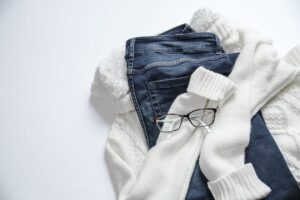lululemon announces a multi-year collaboration with biotechnology pioneer ZymoChem to expand its use of bio-based nylon innovation. Together, lululemon and ZymoChem will sustainably transform a key building block of nylon 6,6: a foundational material used in lululemon’s iconic products including its Align and Wunder Train leggings.

lululemon
Athletic apparel company lululemon creates transformational products and experiences which enable their consumers to live a healthy life—physically, mentally, and socially. Setting the bar in breakthrough fabrics, innovative construction techniques, and supportive fit, Lululemon works with yogis and athletes in local communities for continuous research and product feedback.
Driven by science, research, and development, their approach to design is rooted in a desire to create versatile apparel. Their work with ZymoChem began last year with an initial investment to support innovative technologies used to create a bio-based version of adipic acid, one of the key chemical building blocks of nylon 6,6 traditionally produced from petroleum. The next phase of this partnership will focus on scaling ZymoChem technologies to support the commercialisation of this bio-based alternative.
“What truly sets ZymoChem apart is their groundbreaking technology, which is capable of producing a bio-based material to create sustainable nylon 6,6 that provides the same look, feel, and quality expected from our high-performance products,” said Yogendra Dandapure, VP, Raw Materials Innovation at lululemon. “By continuing to expand our partnerships with forward-thinking leaders like ZymoChem, we’re creating multiple pathways to transition to sustainable materials across our product portfolio.”
lululemon also has partnerships with other sustainable materials leaders like Geno, to expand lower-impact bio-based nylon alternatives. Last year, lululemon and Australian enviro-tech startup Samsara Eco unveiled the world’s first enzymatically recycled nylon 6,6 product. Its partnership with ZymoChem marks another important step in the company’s aspiration to provide more sustainable high-performance apparel.
“We spent years refining our patented Carbon Conserving process with a vision to develop a sustainable version of nylon,” said Harshal Chokhawala, Co-Founder and CEO of ZymoChem. “We are thrilled to have deepened our engagement with lululemon, setting the stage for our technologies to deliver bio-based and decarbonised nylon on a global scale.”
History of lululemon
Lululemon was established in 1998 in Vancouver, Canada, by entrepreneur Chip Wilson. Lululemon started as a design studio during the day and a yoga studio at night, with the first storefront opening in 2000. The Vancouver lululemon location was one of the first stores to recognize and capitalize on the yoga apparel trend.
The first lululemon product was little black stretchy pants made from a unique technical fabric that felt like cotton but was durable and squat-proof. The yoga pants soon became a popular choice for runners and other athletes besides yogis, prompting lululemon to start selling different athletic apparel and accessories beyond yoga-specific items.
Lululemon’s initial public offering in July 2007 raised a reported $327.6 million. Since then, lululemon stock has grown many-fold, competing with athletic wear giants like Nike, Adidas and Under Armour. In 2013 the company made its third successive listing on Fortune Fastest-Growing Companies. That year Chip Wilson announced his resignation as Chairman and revealed that Laurent Potdevin would be CEO.
The following year lululemon announced an investment in Mirror: a fitness startup that sells an interactive mirror with a camera and speakers for home workouts. In June 2020 lululemon announced a $500 million deal to purchase Mirror inspired by an increasing trend of people focusing on virtual workouts at home due to the pandemic. In 2024, lululemon Athletica Inc. agreed to acquire the operations and retail locations of its franchise partner in Mexico for an undisclosed amount.
Jasmeen Dugal is Associate Editor at FashionABC, contributing her insights on fashion, technology, and sustainability. She brings with herself more than two decades of editorial experience, working for national newspapers and luxury magazines in India.
Jasmeen Dugal has worked with exchange4media as a senior writer contributing articles on the country’s advertising and marketing movements, and then with Condenast India as Net Editor where she helmed Vogue India’s official website in terms of design, layout and daily content. Besides this, she is also an entrepreneur running her own luxury portal, Explosivefashion, which highlights the latest in luxury fashion and hospitality.











